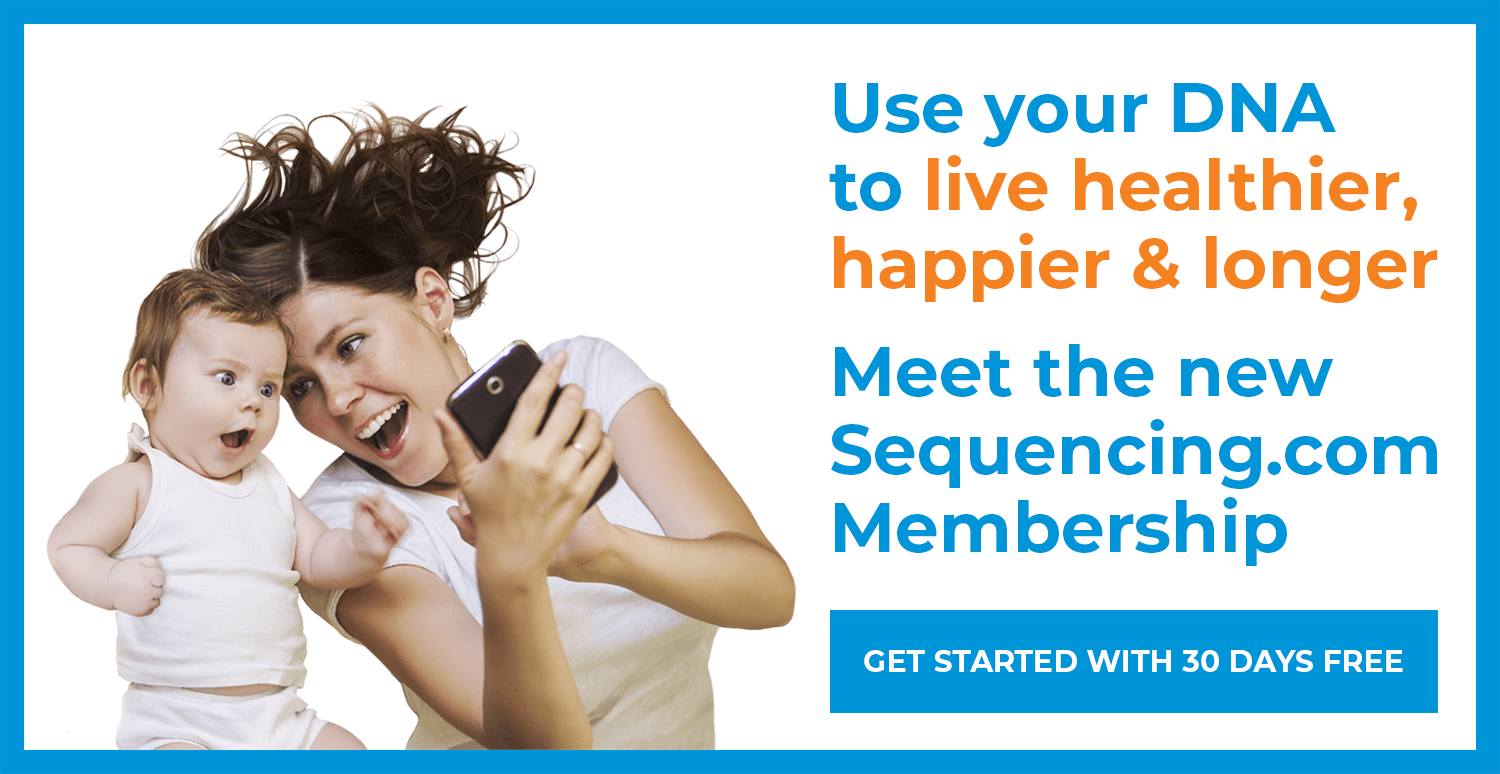For example, genetic analysis company 23andMe had to stop communicating information about customers' health gleaned from its microarray-based analysis of their DNA after the US Food and Drug Administration cited it for offering a genetic test without the proper clearance. Since then, the company has launched individual analyses through the FDA, but still cannot perform the comprehensive analysis it launched with.
However, customers can currently take their raw genetic data from 23andMe or other companies and link it to their biology or learn about its implications for their current and future health, using services offered by other companies.
Anticipating a future in which use of these tools continues to grow, Sequencing.com aims to be a one-stop shop that will collate and organize available analysis engines or apps in a single space, and facilitate access to them by consumers who have a range of different types of genomic data at hand.
The company's platform has been live online since the beginning of the year, in what Brandon Colby, Sequencing.com's founder and CEO said was a beta period, in which it tweaked and optimized its system.
Now the company is hoping to get the word out about what it can offer users and app developers.
In essence, Colby told GenomeWeb, Sequencing.com wants to be both a safe space for genomic data, and a modern-world agora, or marketplace for tools to understand that data and put it to use.
"Our perspective on the data being generated by all these genetic testing companies is that it is owned by the individual. It is a person's asset, that they have, and that we store to make it useful for them," Colby said.
"One of the problems I have seen with the industry is that it's very fragmented in terms of the tools and different ways that exist to analyze and interpret genetic data," he added. "You might have data from 23andMe or be an early adopter of whole-genome sequencing, but you don't know what to do with it."
According to Colby, Sequencing.com has a two-part structure. First, the company offers free, unlimited, and HIPPAA-compliant storage of a user's genetic or genomic data.
"We have researchers with terabytes of FASTQ and BAM files. It's always free. We don't see storage as something that should be monetized," he said.
The second side is providing a marketplace that brings together what the company hopes will be all the best available tools or apps for analyzing and interrogating genomic data.
The site started with 25 internally developed apps, and now has 27, Colby said. And with its official launch this month, it is now anticipating adding its first externally developed apps in the next few weeks, with ongoing discussions with numerous developers.
In light of the company's focus on personal ownership and safety of users' data, it has a process for evaluating and vetting potential third-party apps. "We want customers to feel confident that there is a certain floor an app can't pass below," Colby said.
This process included the company's own bioinformatics team looking at the structure and claims being made by a potential new app, to make sure "nothing audacious is being claimed, and everything is based on published literature."
"This means no 'you have this gene, and you're going to live to 1,000 years, but you have to take our vitamins,'" Colby said.
Sequencing.com can host third-party apps on its own platform or, in cases where other companies have put a lot of time and effort into creating their own product and user interface, they can take advantage of Sequencing.com's app market API, which creates a required link with an outside platform.
The company's own apps currently range from those geared toward users with professional genomic experience, like bioinformaticians, to simpler consumer-oriented apps that address potentially actionable health information.
On one side, Colby said, the site's main bioinformatics app, called EVE (abbreviated from the word 'everything') allows users to create a pipeline for variant calling, alignment, and interpretation, without needing to do their own coding or be LINUX masters.
Since most of the tools that are a part of this app are open source, the app is free, Colby said.
On the other side of the spectrum, the current slate of apps in the Sequencing.com marketplace also includes an app called "Wellness & Longevity," which analyzes user data for links to genetic risk of a range of "preventable diseases," including cancers, heart disease, diabetes, multiple sclerosis, blood clot or bleeding disorders, as well as pharmacogenomic determinants of drug response.
"Knowing your risk means having the chance to lower it," the app description reads.
Another app in the online agora, "Healthcare Pro" is geared more toward generating a report for use by a medical professional.
"In addition to the genetic report, the Healthcare Pro app results also include detailed information about the specific genes and genetic variants analyzed as well as the medical references that link the variant to a specific disease, medication reaction, or trait. This information is easy to browse and search with some content linking out to additional information.
According to Colby, Sequencing.com's free storage is already attracting users, and data, rapidly. He also stressed that developers are attracted to the company's data agnosticism, which gives them an easy way to attract more users, and users with a variety of different formats of data.
For example, he said, "a lot of third-party apps were designed for 23andMe data and they are seeing good adoption for this, but they want to expand out to [users with data from] another company like Ancestry or they are looking at exomes."
"It can be a quagmire dealing with different formats of data, but when they join Sequencing.com they receive full compatibility."
Continue reading Sequencing.com Hopes to Shepherd Growing Market of DIY Genomics Tools ![]() Article
Article

